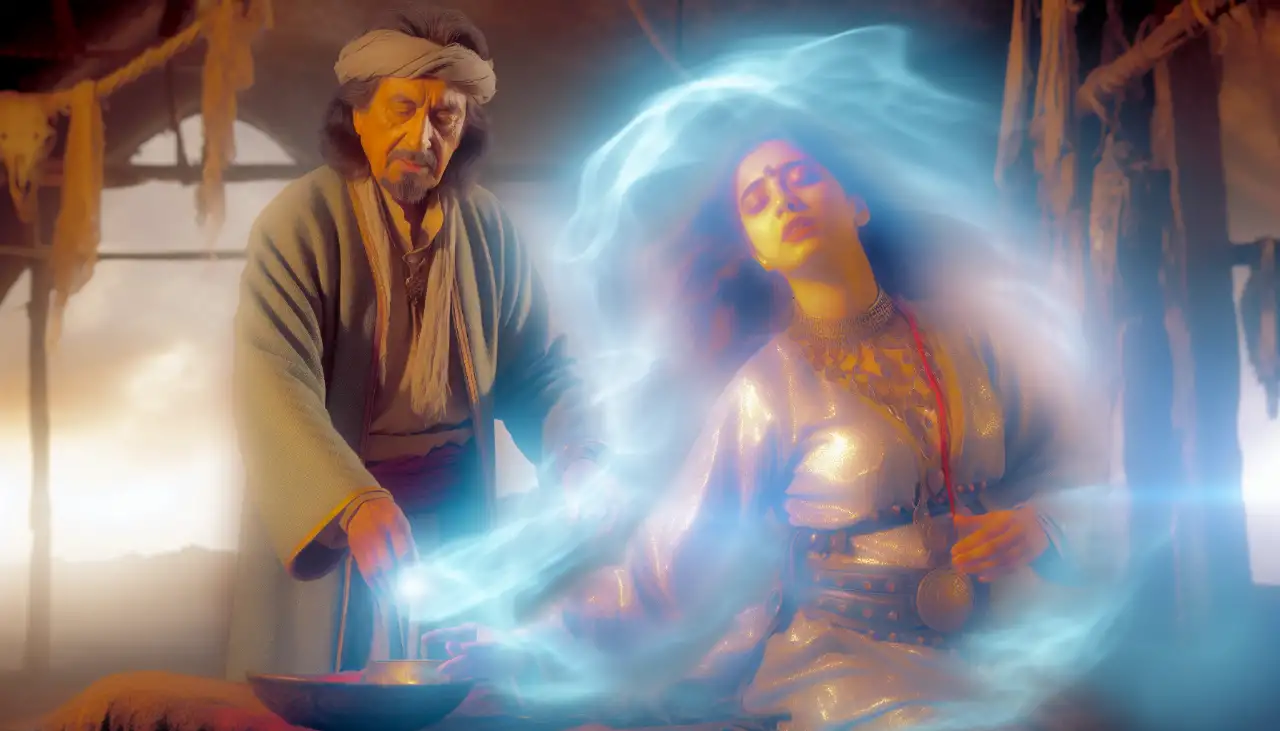
Shamans are often identified in older or more primitive cultures as essential in aiding the process of fertility and birth. Very often, in modern society, we want to overlook another one of their fundamental tasks in serving their communities, and that is to be there also at the end of life, assisting the dying and those departed, on their journeys from this world.
We have no issues when we look at primitive cultures in allowing for both those positions in a shamanic culture, but in our own we have defied both in order to embrace what we like to think of as more culturally sophisticated and civilized behaviors. The modern shaman, however, still functions in those capacities within the communities they serve to a greater or lesser degree.
When we speak of roles in the shamanic, those talents and tasks that seem to act as specialized areas of the experience where people may find themselves drawn, or even innately attached, also include both of these positions. Today, with our culturally morbid and fearful sense of death, we don't like to associate the end of life with a particular practice, or set of practices, and those who are often drawn to that area of the work can suffer because people may think of them as just too weird, even for the shamanic. Just as there are dreamers, seers, healers, power seekers and specialists of all sorts in the shamanic, the deathwalkers are still a part of any real tradition and represent an important element of the practice that all shamans need to understand and work with to some degree. The deathwalker is not a grim reaper; they are releasing that which is trapped, moving that which is beyond life, but not yet truly within the clutches of death. Theirs is an important role in endings, just as midwifery and fertility are for those that attend the beginning of the cycle of life.
Those who are naturally attracted to it as a role are not sad depressed people with beagle eyes and cynical outlooks. They are usually optimistic and find great satisfaction in that process of dissolution, acting as an intermediary, counselor and prod, to help that human energy which is trapped or refusing to let go. This is not Hollywood; the deathwalker perceives their task as part of the necessary cycle of life and one that they are particularly adept at through virtue of their own predilections. That energy, which may exist after death, or is becoming unbound during the process, may well seek them out, not through intellectual choice, but through an attraction to the affinity for sight and action which seems to lie in those who work this practice in particular. While a person who has died or is dying may have written the poetry of their own existence, they lack the final verse, and with gentleness, kindness and compassion they are able to write the last words with the help of the deathwalker.
How does one know if they are a deathwalker?
The process usually begins in childhood, although it can start much later when you start to actually 'see' what you were seeing all along but denied. You will usually have spontaneous visitations, energies are drawn to you, emotions that strike you that don't fit, even memories that are not of your life. Pursuing those things leads you to understand that you stand apart from them and they are something different, human, yet undefined in totality, but insistent in existence. This is part of what all shamans do. Some are blessed with an innate ability to deal with the dead, others work with it in more indirect ways, but it is something that all shamans are called upon to do as a part of their work. It's just like hemorrhoids - we don't just work on the nice parts of people, we have to work on all of them, and their problems aren't always pretty.
The deathwalker is called early and called upon often. If they lack training and it starts in childhood, what you can end up with is a dreadfully fearful, neurotic individual. If they have just the right balance, they can survive that at least to a point they can begin to see it not as a threat, or terrifying, but something wonderful and intrinsically a part of life. If you don't find dead people in your car, then you probably are not a pure deathwalker. That doesn't mean that you do not work with the process - all shamans do; it's in the job description. It is a very real form of energy, the energy of the void.
I can feel it standing by, when people are dying, it's very palpable to me.
Yes, just like birth itself, the struggle to live, it is the struggle of death and dissolution. It's not a bad thing, but it can make people very nervous.
I have learned to keep quiet about it.
The more you see, the less you can say.
Can this be why cemeteries can be so overwhelming for me?
Yes, you fall more closely to the category of the pure deathwalker. Tribes, (some shamanic traditions,) used to have specialist shamans who worked this way. Cemeteries can be very sad places, but they are above all repositories of history, energy that remains.
Seeing Energy Unravel
You mentioned before that what I see is based on the point they are at in the dissolution. Can I pinpoint this place in order to better help?
Yes, the way to pursue it is to watch the dying. Watch the process; 'see' it in its raw natural state.
I don't have much opportunity for that.
Everything dies; humans aren't special in that, the process is the process. Even the mountains are dying.
Oh! I was thinking only of human energy because that seems to be what I deal with.
Yes, but you can learn from any energy. How it moves towards dissolution, the process of separation and how each individual strand of life becomes unbound.
But non-human would dissolve differently, would it not, because of the lack of attachments?
Yes, it does, but the process is the same. Once you understand the process, you can begin to see where humans break away or get stuck in it by how far they have moved through it.
I thought perhaps I was seeing their energetic form.
In a way you are, and it can be quite lovely, but it's almost impossible for humans or anything to retain all of its energy at death - only certain parts will remain. They can even split off and end up in different places; the rules are no longer applicable. Some appear nearly perfectly human in form, too. Watching someone die is hard, even someone you are not attached to in an emotional way. In the past death was in everything and humans died easily, so access was better.
Interesting, in a strange way, to actually see the energy come apart.
Yes, it's a strange place to be cast in to. That's why I have always referred to it as becoming unbound. It's not a breaking, or a purely dissolving thing; it really is more as though we become unbound. It's a beautifully awesome thing to see - the tapestry of their life, unwoven by an unseen hand. It is not an entirely sad thing to deal with, although I can see how people in this culture see it that way. I try to see it as a service, the same as healing, seeing, or anything else.
Identifying Deathwalker Energy
What are some of the early indications or experiences that might point us to identify deathwalker energy? If identified, how would you suggest working with it most effectively to help them? (Both children and adults)
When children come to you and speak of their invisible 'friend' or friends, don't dismiss it out of hand. I think most people wouldn't do that anymore, but then you are called upon to do more. Question them about the nature, description and things they talk about with those friends (that is, if it's that apparent to them). If they are dealing with a less specific contact - in other words, they have some talent in that direction, but are not that drawn to it naturally - you need to work with them to discover the nature of their feelings. If it scares them, where do they feel it first, and so forth. Most people will feel the energy in one of two places, either the pit of the stomach or the nape of the neck. These are the two areas through with people start the process of unbinding and is usually where living humans will feel it when the energy touches their own.
Crossing Over
Can you walk us through the shamanic process of helping someone 'over'?
Yes. The key is to watch, if you can. Let's speak of that process first, since there are essentially two. When someone dies, or begins that process, there is what you can think of as an event horizon, a point at which there is no return, and beyond which things in this reality are of no more concern. If a person is dragging their own energy behind them in the sense of great guilt, or grief or fear, then you can have a process where energies can cling to the rim of that horizon and the process is broke - energy unbinds but does not leave the world completely. It is very crucial, as a shamanic practitioner and deathwalker, to step into the process with them and walk a ways with them on their journey. You must recognize the essential energy, emotional almost always, that is causing them to attempt to recoil within their own energy. You must reach out and soothe, calm, and help point them on their way. You must create a space for them that allows them to let go, that nothing that bound them in the world is now important. Time is gone and their time is past, not as a sad thing, but as a change from one point of existence into many.
Some will fight this.
Yes, some do and it is not our place to fight their process or control it. We can only walk with them as far as they can go. Some won't go and have to be dealt with after the fact.
So, because we can walk further across the bridge, so to speak, we walk with them and help them make the passage to that point where we cannot go further ourselves?
Yes, which brings us to the second method. When you find yourself in contact with energy that has clung to this side of the world, you have to coax, push, even prod it to finish the process of letting go. There is a point at which you will cease to breathe, stop there. Some energies combine with other energies and create other problems, but that is really a subject for another night.
The place of white light?
Yes, don't go there, that would be the big twinkie. It is the form of human expression both into and out of this world - the gateway. Don't go through it.
I have a profound respect for the act of helping someone to die, and I know it's part of healing. A part of me knows it's necessary as the ultimate act of healing, but the healer in me doesn't know when that point is - 'heal and live dammit!'
Yes, why do we do this instead of insisting on healing - because we're not gods. One of the hardest things for any healer to deal with is the fact that you can't heal everyone, and you can't cheat one of the fundamental processes of life itself, which is death. You can maneuver some, you can move things for people to a place where if it really isn't taking hold they can recover, but there is that place where it has stopped being a living process and has become a dying process. We as healers must be honest enough and detached enough to recognize that and allow what must be to be. I've brought people back from the brink. I've also watched young people die from things that didn't have to kill them except in their own perception that was what was expected of them.
This is serious business. When you reach a point as a healer that people are willing to put their very lives in your hands, there is no room for anything except absolute impeccability. To do less than your absolute best is failure. But once you have done your absolute best, you have done all you can do. People don't understand me. I've watched things die; people I loved immensely died, inch by inch, day in and day out, only to realize I could not be the commander of the process. I could only walk the path with them and offer my hand. We are wounded, and we heal best from our deepest pain.
Letting Go
When I saw my friend the Tuesday before she was hospitalized, it felt like her energy was draining. I sensed she was going to die, but tried to convince myself otherwise, even though I felt myself pulling away from her. When she was in the hospital, people were saying they thought she wasn't accepting her death and was fighting, in denial. I sat next to her, setting intent to heal her. Instead, I took her hand, and wished her to let go. That everything she needed to do here was done. After that, she seemed to slip into a coma and only talked 3 more times the following days before she passed. I found myself not really mourning over her death or losing my best friend so much as, well crying over what I did. At the time I felt guilt for doing it, but I now see differently. I'm wondering if its strange not really mourning over someone's death?
Yes, and you did the right thing with your friend. You offered her the serenity of a life completed, and a future of new expansion. The energy of those that go on may linger, usually not more than a few months, but it tends to seek out those most familiar to it in terms of energy. Then there is the final movement of all their energy past the barriers of our perception. You did well not mourning. It was only because you let those attachments to her go so she could begin moving. It was a selfless act.
The longer someone has been dead, is there less chance of connecting with their energy?
Not necessarily; energy that stays here can last a long, long time. It really depends on how intense the intent to hold on through those parts of themselves was. But over time, even that will fade away. It could last centuries, though.
If they were fairly enlightened?
Enlightenment is a process of mind; emotions rule our existence here. It really depends on their emotional energy. The mind is a construct of perception. Human energy is so much bigger than that. If they were prepared to let go and were at peace with that, then the odds are they went all at once.
I'm finding myself wanting to talk to my grandfather. He died when I was 15.
You can talk to his energy any time, nothing is past except our perception of it. Everything exists now. Reach out for him; he is there.

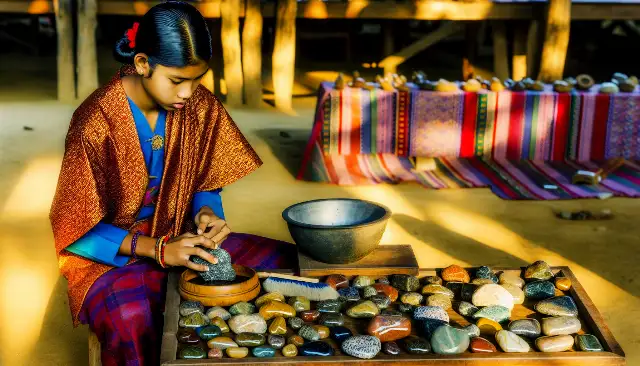
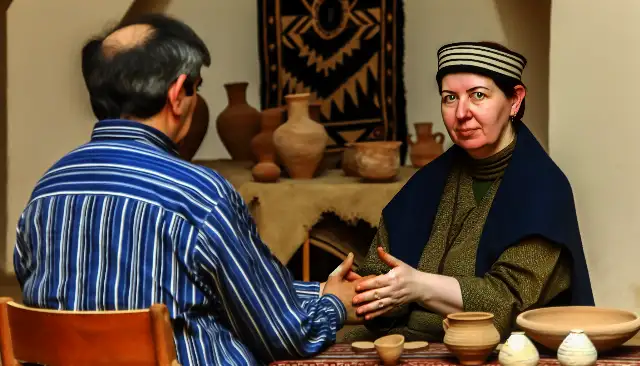
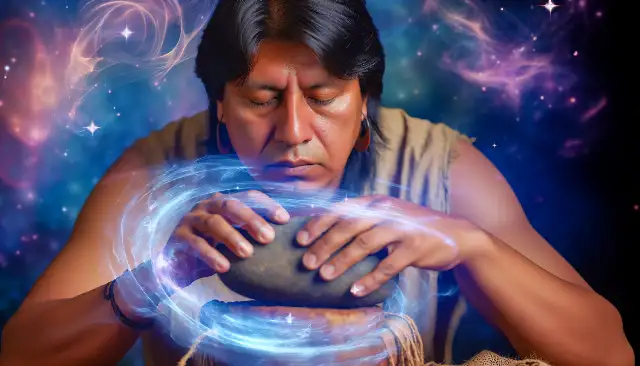
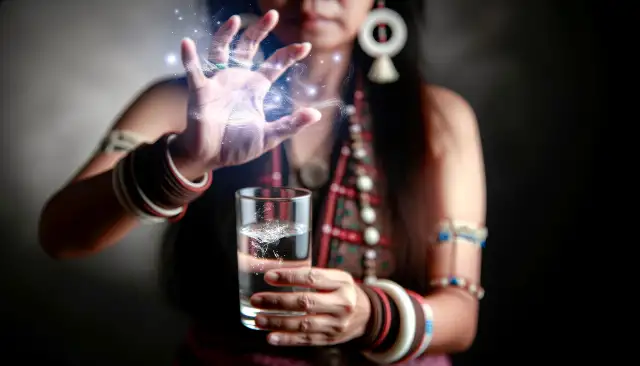
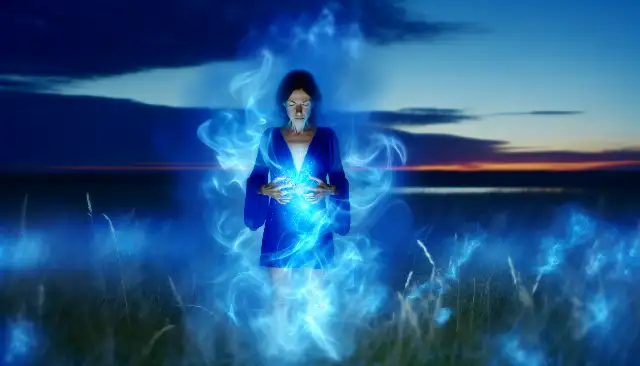
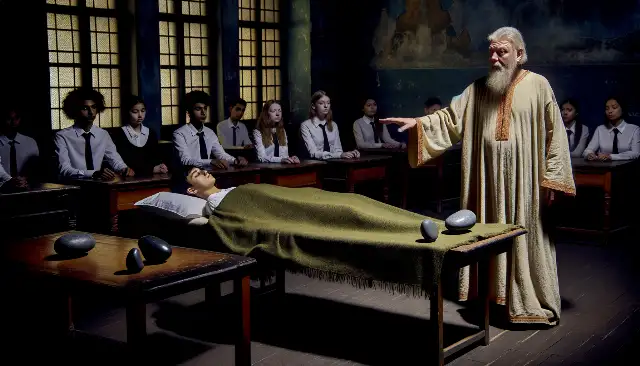
You don`t have permission to comment here!
Terms & Conditions
Subscribe
Report
My comments